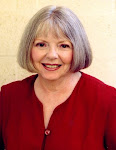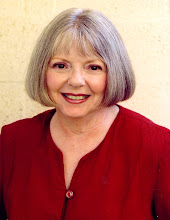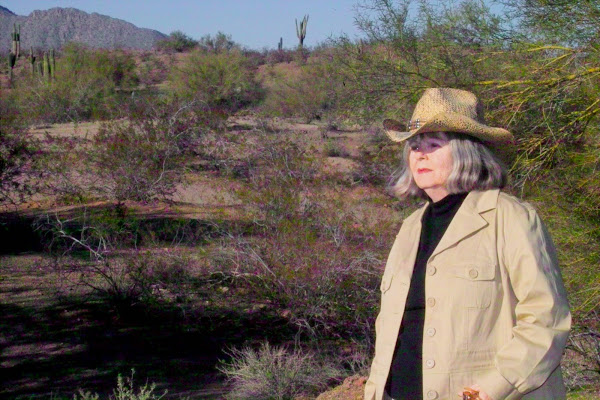BETTY: You have a new book out and it’s creating quite a stir. Tell me about it.
DONIS: The Drop Edge of Yonder is the third installment in my historical mystery series featuring Alafair Tucker, a woman in her 40's who lives with her husband, Shaw, and their 10 children on a prosperous farm in Muskogee County, OK, in the 1910's. The Drop Edge of Yonder is about Mary, Alafair's second child, a naturally happy person -- until one evening in August of 1914, when she wakes up on her back in the middle of a field, staring at the sky and thinking about the Fourth of July. At first, she can't remember where she is or how she got there, or why she's thinking about the Fourth of July. Then it dawns on her that she's just witnessed a murder, and been grazed in the head by a bullet, to boot.
Have you ever been in a situation where you know the answer to something, but you just can't grasp it? Mary knows she holds a vital clue that will help solve this murder, and she feels that if she can just be left in peace to think about it and perhaps write about it in her journal, the answer will naturally float to the surface. The only trouble with this plan is her mother. Alafair doesn't have the slightest intention of leaving her in peace, mainly because she doesn't have time. The murderer is still around, and he seems to be trying to eliminate anyone who might be able to finger him. Alafair is desperate to keep Mary safe and do whatever she can to help identify the killer, so she hovers, and prods, and snoops, and generally drives Mary to distraction. Alafair may be annoying and relentless, but these are just the qualities it's going to take to save Mary from a killer.
BETTY: Sometimes having a “civilian” sleuth can be a problem for a writer. I mean, how does the civilian ask all those questions? And why would anyone bother to answer, anyway?
DONIS: Alafair is the most amateur of sleuths. In fact, she doesn't care at all about being a detective. What she does care about is getting and keeping her mobs of children out of trouble. But fortunately for me, her children and their friends manage to get themselves into a lot of trouble, and need their mother to get them out.
The fun thing for me about this series is that each book features a different one of Alafair's newly-grown children, and each child is different, with different interests and reactions to situations, different ways of handling things. And each one has to be handled differently by his/her mother. The first book, The Old Buzzard Had It Coming, was about Phoebe, Alafair's 4th child, a gentle and tractable girl who gets involved in a murder investigation, and is only too happy to have her mother's help to solve the mystery. However, the second book, Hornswoggled, features Alice, Phoebe's fraternal twin, who is headstrong and willful in the extreme, and doesn't in the least appreciate her mother's efforts on her behalf, even if Alice has fallen for a man whose late wife was knifed in the chest and dumped in the creek.
BETTY: Tell me something about your writing experience before you came up with the Alafair series. And while you’re at it, tell me why you decided to make women and their concerns figure so prominently in your books.
DONIS: I've written stories, poems, and books, fiction and non-fiction, all my life. But this series is different than anything I ever wrote before. I had never written a mystery, nor had I ever written about a traditional woman before Alafair came into my life. I'm quite the Baby Boomer, very much the feminist and professional in my younger days. Alafair represents a major departure not only in my writing, but in my view of the world. There was an article by Erica Jong which appeared in Publisher's Weekly last April, entitled Ghetto (Not) Fabulous, which struck me as expressing very much the mindset I was in when I created Alafair and her world. Allow me to excerpt a sentence or two: "Critics have trouble taking fiction by women seriously ... deep down the same old prejudice prevails. War matters; love does not. Women are destined to be undervalued as long as we write about love. ...We may glibly say that love makes our globe spin, but battles make for blockbusters and Pulitzers ...Unless we value the bonds of love as much as male territoriality, we are goners ... let's celebrate our femaleness rather than fear it. And let's mock the old-fashioned critics who dismiss us for thinking love matters. It does."
Love certainly matters to Alafair. And she doesn't think for a moment that being loving makes you weak. It makes you tough as nails. It gives you teeth and claws, and can make you dangerous. And maybe intellect isn't the highest form of knowing. Maybe intuition is the keenest observational sense of all. Alafair doesn't have the slightest doubt that this is so.
I was asked once which character in this giant family I identify with most strongly. I had to think about it, because of course all the characters have elements of me in them. I very much identify with the oldest daughter, Martha, because I'm the oldest, too, and I know just where she's coming from. But I think I feel the most empathy with Alafair herself. I think Alafair is me, if I were totally different than I am. She has all the traditional strengths and virtues I wish I had, but don't.
BETTY: How long does it take you to write a book?
DONIS: The Drop Edge of Yonder is a book that was years in the making. All of my books contain many incidents that actually happened, small and large, in my family or my husband's family... or someone I heard about or read about or knew slightly. But Drop Edge is particularly full of actual events. The murder itself is taken from something that happened in my family in Arkansas during the Civil War. The climax was inspired by an article I read in the Lubbock Avalanche-Journal over thirty years ago, about an incident that happened to a British soldier who had been posted to Palestine after World War II, when he was attacked by a Jewish insurgent who refused to die, in spite of being beaten, shot, and stabbed numerous times.
BETTY: Do you have any advice for aspiring writers?
DONIS: For aspiring writers? Hmmm. I don't think that there's anything mysterious about being a writer. If you write, you're a writer. However, if you want to be a good writer, you have to practice practice, practice. It's like any art. The more you do it the more skilled you become. I also think that the best writers are prolific readers. Learn from the masters. As for getting published - become the best writer you can, never give up, and trust the process. If you're good enough and persistent enough, you'll get published.
One of my favorite quotes about writing is from a little book called The War of Art, by Steven Pressfield :
"Creative work is not a selfish act or a bid for attention on the part of the actor. It's a gift to the world and every being in it. Don't cheat us of your contribution. Give us what you've got."
Friday, January 18, 2008
Subscribe to:
Post Comments (Atom)










No comments:
Post a Comment